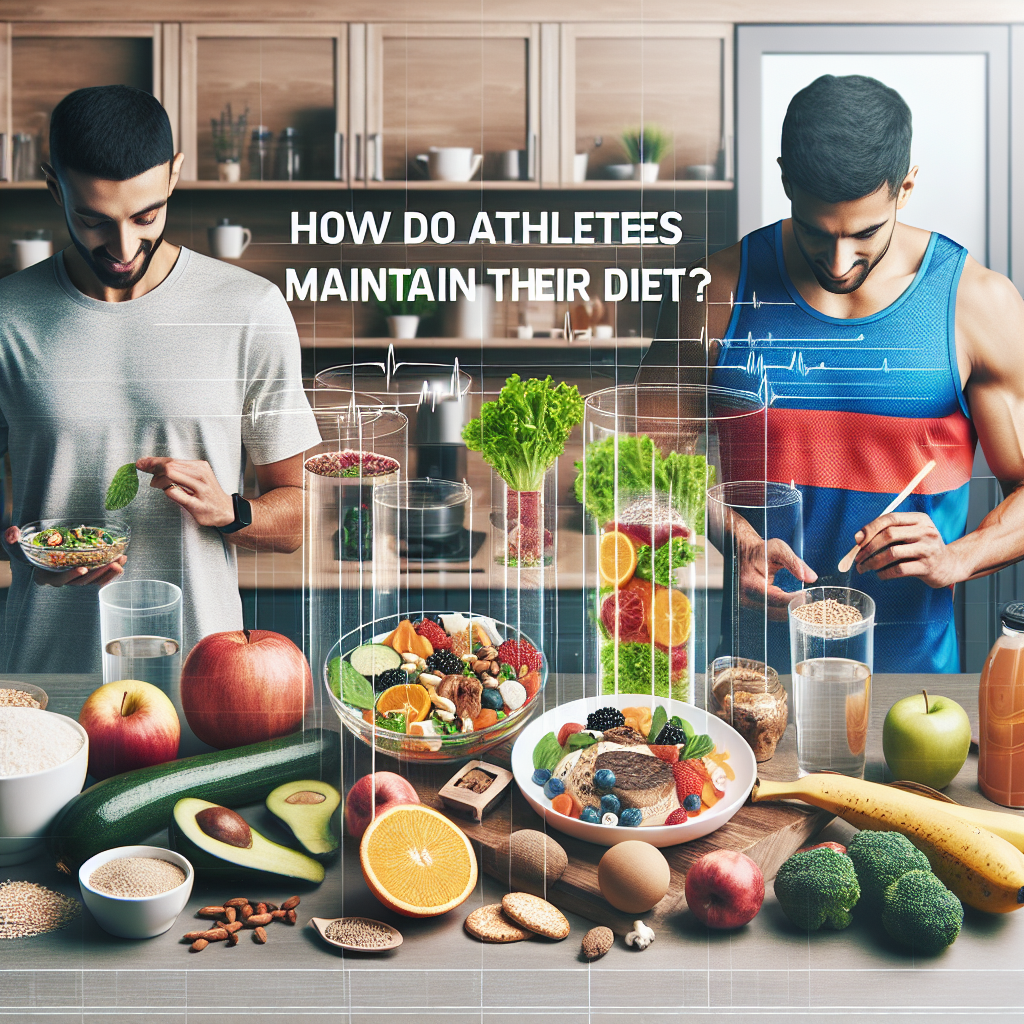Athletes are known for their dedication to their sport and their rigorous training routines. However, one of the most crucial aspects of an athlete’s performance is their diet. Proper nutrition plays a key role in helping athletes train harder, recover faster, and perform at their best during competitions. In this article, we will explore how athletes maintain their diet to support their athletic endeavors.
Athletes, just like everyone else, need to fuel their bodies with the right nutrients to maintain their energy levels and support their physical performances. However, because of the high demands that their bodies endure during training and competitions, athletes often have specific dietary needs that differ from the average person. Here are some of the key ways in which athletes maintain their diet to support their athletic performance:
1. Eat a balanced diet: Athletes need to consume a balanced diet that includes a variety of macronutrients (carbohydrates, proteins, and fats) and micronutrients (vitamins and minerals). Carbohydrates are essential for providing energy for workouts, proteins are important for muscle repair and growth, and fats help with hormone production and energy storage.
2. Timing of meals: Athletes often have specific meal timing strategies to optimize their performance. Eating before and after workouts is crucial for providing the necessary energy and nutrients for training and recovery. Some athletes also time their meals around their training schedule to ensure they have enough energy for their workouts.
3. Hydration: Staying hydrated is crucial for athletes as even slight dehydration can impair performance. Athletes need to drink plenty of water before, during, and after workouts to maintain their hydration levels. Some athletes also use sports drinks or electrolyte supplements to replace lost fluids and minerals during intense workouts.
4. Nutrient timing: In addition to meal timing, athletes also pay attention to nutrient timing. This involves consuming specific nutrients at certain times to maximize their effects on performance and recovery. For example, consuming carbohydrates and proteins within 30 minutes after a workout can help replenish glycogen stores and promote muscle repair.
5. Supplements: Some athletes use supplements to fill in nutritional gaps in their diet or to enhance their performance. Common supplements used by athletes include protein powders, creatine, and branched-chain amino acids. It is essential for athletes to consult with a sports nutritionist or dietitian before taking any supplements to ensure they are safe and effective.
6. Individualized diet plans: Every athlete is unique, and their dietary needs may vary depending on their sport, training intensity, and personal preferences. Some athletes may benefit from a high-carbohydrate diet for endurance sports, while others may need a higher protein intake for muscle building. Working with a sports nutritionist or dietitian can help athletes develop individualized diet plans that are tailored to their specific needs.
7. Balancing caloric intake: Athletes need to consume enough calories to support their training and performance, but they also need to be mindful of not overeating. Balancing caloric intake is important to maintain a healthy body weight and performance level. Athletes may need to adjust their caloric intake based on their training intensity and goals.
FAQs:
Q: Do athletes need to eat more than non-athletes?
A: Yes, athletes often have higher energy needs due to their intense training and physical demands. They need to consume more calories to support their training and recovery.
Q: Can athletes eat junk food?
A: While occasional indulgences are okay, athletes should primarily focus on consuming whole, nutrient-dense foods to support their athletic performance. Junk food may not provide the necessary nutrients for optimal performance and recovery.
Q: Should athletes cut out any food groups from their diet?
A: Cutting out entire food groups can lead to nutrient deficiencies and impair performance. Athletes should focus on consuming a balanced diet that includes a variety of foods from all food groups.
Q: How can athletes optimize their recovery through diet?
A: Consuming a combination of carbohydrates and proteins within 30 minutes after a workout can help replenish glycogen stores and promote muscle repair. Adequate hydration and rest are also essential for optimal recovery.
In conclusion, maintaining a proper diet is crucial for athletes to support their athletic performance and achieve their goals. By consuming a balanced diet, timing their meals and nutrients, staying hydrated, and individualizing their diet plans, athletes can optimize their training and recover faster to perform at their best. If you are an athlete looking to improve your diet, consider working with a sports nutritionist or dietitian to create a personalized nutrition plan that suits your needs and goals.
